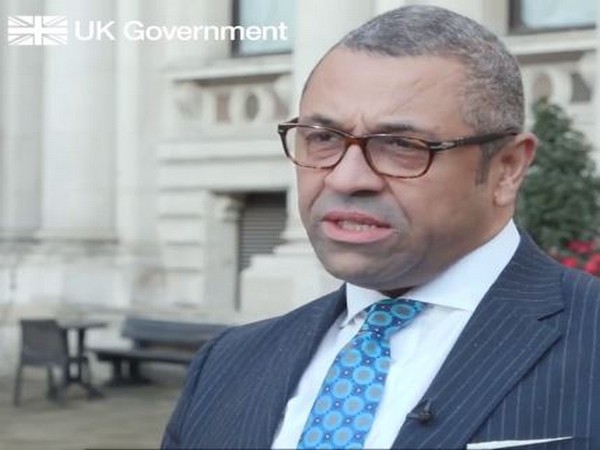Britain will not sign off on Northern Ireland deal without DUP backing - Cleverly
Britain's foreign minister James Cleverly said London would not sign off on a deal with the European Union over changes to Northern Ireland's post-Brexit trading arrangements without the backing of its biggest unionist party.

- Country:
- United Kingdom
Britain's foreign minister James Cleverly said London would not sign off on a deal with the European Union over changes to Northern Ireland's post-Brexit trading arrangements without the backing of its biggest unionist party. Cleverly told Times Radio on Friday that Britain's negotiations around the Northern Ireland Protocol were focused on addressing the concerns of the Democratic Unionist Party (DUP).
"When, hopefully, we get those issues resolved then I would hope that the DUP would recognise that we've addressed their concerns and until we have addressed those concerns we're not going to sign off on the deal," he said. Britain and the EU are trying to revise the Protocol - the arrangements agreed to avoid a hard border with EU member Ireland when Britain exited the EU in 2020.
But London needs the support of the DUP if a deal is to restore Northern Ireland's power sharing government that the DUP is currently boycotting over its opposition to the protocol. The party has proven to be central players in almost seven years of often tortuous Brexit talks and their resistance has torpedoed previous attempts at agreement.
Opinion polls have consistently shown a majority of Northern Irish voters - who earlier opposed Brexit - favour the idea of the protocol and it is also backed by a majority of lawmakers elected to the devolved assembly last year. But the imposition of checks on some goods coming from the rest of the United Kingdom has angered many pro-British unionists who see it as undermining the union with Britain.
The latest quarterly poll conducted for Queen's University Belfast showed on Friday that 53% see the current lighter touch application of the rules as an appropriate means of managing Brexit, down one percentage point in the last three months. The number opposed rose to 38% from 34% last time out.
(This story has not been edited by Devdiscourse staff and is auto-generated from a syndicated feed.)










